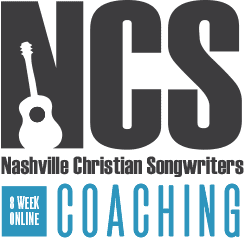
I came to Christ out of a broken childhood people now call “dysfunctional.” But, for us, it was just life in the turbulent 1960’s and ‘70’s. We didn’t know someone would eventually give a special name to what we were living through, but somehow Jesus intervened in my life.
I experienced a dramatic transformation when someone helped me connect with the indescribable love of Jesus for the first time.
Photo by Laura E. Partain
My life was turned upside down in an instant. It’s this same love that’s sustained me for over fifty years through all the ups and downs, the triumphs and tragedies, and the good things too. My testimony is that the trajectory of my life was forever changed when I felt God’s love for the first time at eighteen-years old.
It’s the reason I’m still here. It’s the reason I do what I do. It’s why I’m a Christian songwriter and try to help you write songs that can express this amazing reality. It’s the core value of Nashville Christian Songwriters and all of our podcasts, videos, blogs, and coaching programs exist to share the love of Jesus for everyone on this planet.
So what’s your testimony?
Maybe you felt God’s love in church as a kid or you came to Him as an adult out of addiction or you were broken by a tremendous loss of some kind. I’ve spoken to so many Christian songwriters interested in our coaching programs who’ve suffered great loss or abuse or divorce and who wanted to learn how to express their pain and how God sustained them through it. James Finley says, “God spares us from nothing, but miraculously sustains us in everything.”
But how do we capture our testimonies in great songs?
We all go through this life and taste the best and the worst of it all. But how do we capture our testimonies in great Christian songs? I’ve got three tips for you that I hope will help you think through how to best capture your testimonials in ways that listeners will love and find comfort, healing, and hope.
First, try to find a common thread in your story a lot of people can identify with.
Everyone knows what loneliness is or feeling lost sometimes. Giving people a way to identify with your story is the best way to invite them into your song. We need to hear the thread of our experience in yours somehow. We need to be able to fill in the blanks with our own story in order to fall in love with yours.
If nothing in your story grabs us and reminds us of something we’ve dealt with, we’ll tune out. Our friend and NCS alum, Becky Norquist, went through five miscarriages and one stillbirth. Her songs and ministry are focused on grieving families, but she’s also weaving in enough broader themes in her songs that anyone who has experienced loss of any kind–all of us– can find something to identify with and stay plugged into her songs.
Second, paint the emotion and not the details.
I first heard prolific songwriter and publisher, Dave Clark (Lillenas Music), say that and I’ve never forgotten it. That may sound contradictory from the first point, but it’s not. The first point is to find a common theme (think emotion) to write your song around. This second point is to avoid reciting unnecessary details in your song that are unhelpful to your listener. If you get too deep in the weeds of location, time, dates, names, or other details you run the risk of losing me.
By finding the common thread and common emotion in your story that I can relate to, you invite me into your song. If your details don’t match mine it can put me off. It sounds impossible, but it can be done. You can learn to strike the balance of just enough or too much detail to center on how you felt during the trial and then turn it towards the redemptive part of God’s intervention for you.
… a testimonial song is one that shows how God triumphed in your life.
So just be aware of the details that are so specific to you that we can’t see ourselves in your story. It can help to find models of the kind of song you want to write and see how the writers invite listeners into an emotion instead of reciting details.
Third, know the difference between catharsis and testimonial.
If you’re still bruised and hurting from a terrible event in your life it’s hard to write a true testimonial song about it. Bleeding through your lyrics often comes across as self-indulgent unless you’re writing a cryin-in-your-beer country song. If that’s what you want to do, you do you. Go for it, but just realize that’s not a testimony. That’s a sad country song.
If you think about your audience first, you might realize that they probably have enough of their own pain to deal with. If you’re just dumping yours on them they may not listen long. That’s why God created therapists and journals. Their job is to be the dumping ground of your dysfunction and hurts. Consider the effect of your lyrics on your listeners. What space are you inviting them into? How will they feel after hearing your song?
I think Brandon Lake and the Elevation Worship crew have done a great job with their upbeat praise song “My Testimony” in capturing a generalized Scripture-based message. You might consider not writing a story song about your childhood, but maybe finding some very positive Scriptural themes that demonstrate the healing power of God over all the negative stuff. There are myriad ways to capture your testimony, so explore a few other ways before you pour out your pain on us.
CONCLUSION
In the end, a testimonial song is one that shows how God triumphed in your life. Catharsis is important, even vital, to your emotional health. Maybe you should write those songs for yourself too, but remember that there is a difference between the two types. Catharsis is dumping. Testimonials celebrate God’s triumph over the bad things you went through, His ultimate victory in your soul no matter how you get there.
We dig into testimony songs and so much more in our eight-week online coaching and mentoring experience NCS Pro Song Mastery. A lot of people just want free Christian songwriting courses and webinars, but if you’re ready to go further in your songwriting and feel a strong call to build your ministry, use this link to set up a free, no obligation phone call to see if this program is right for you. Schedule your free call here.

